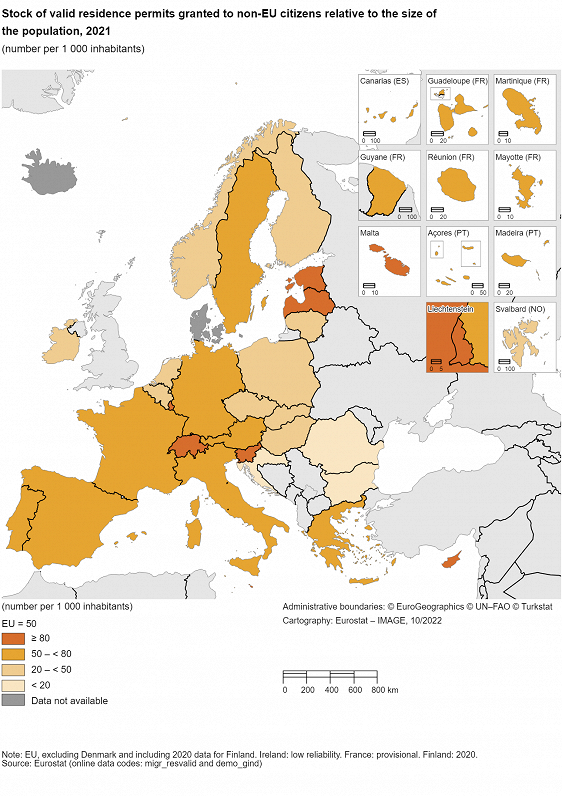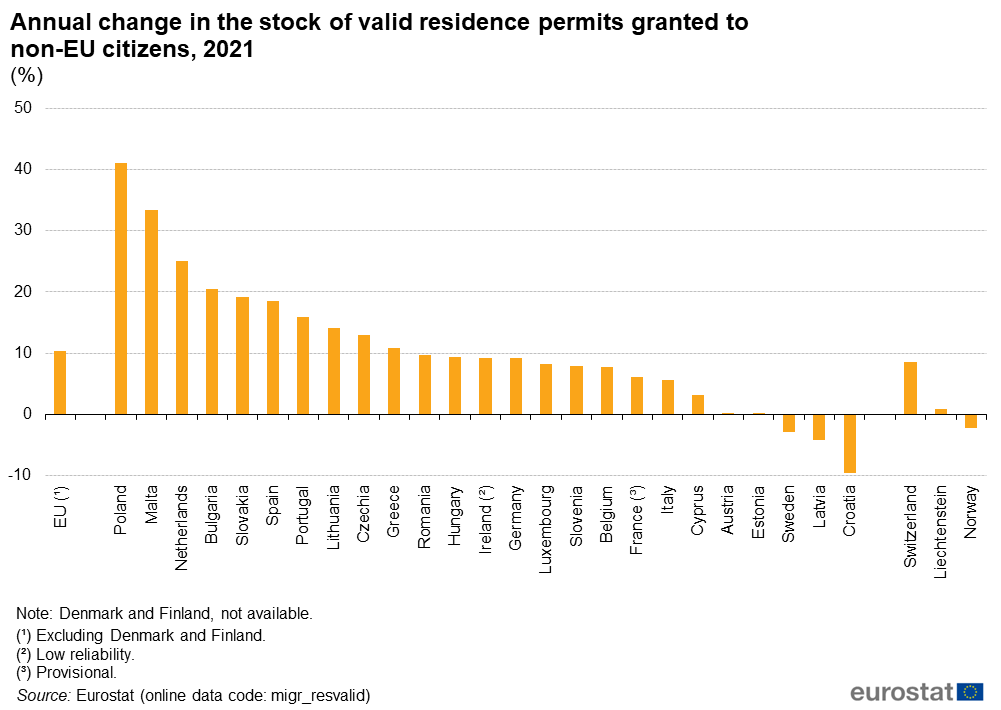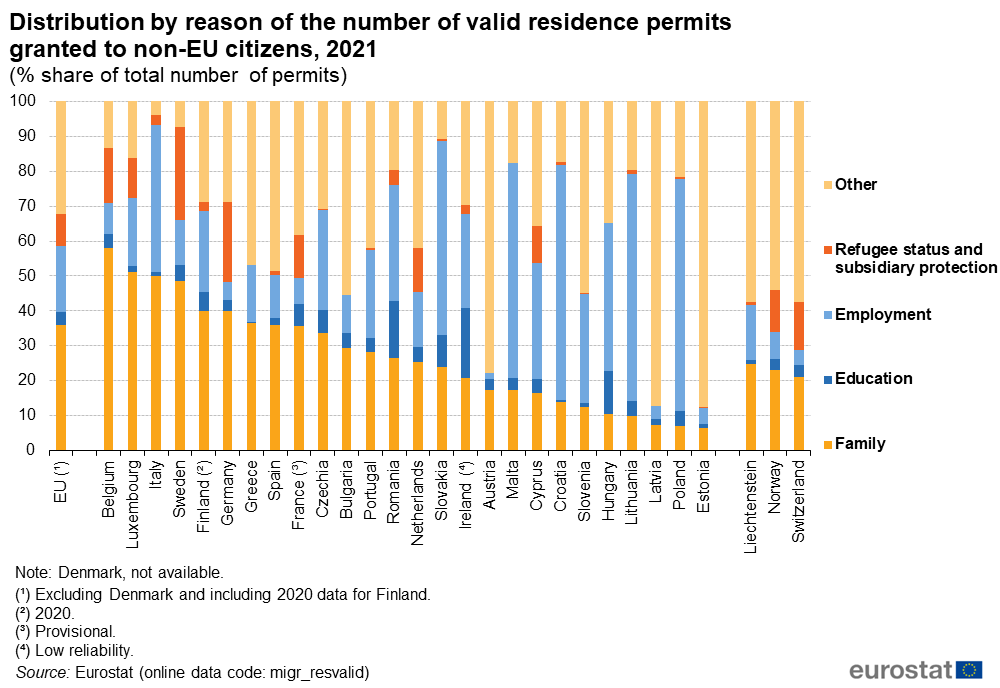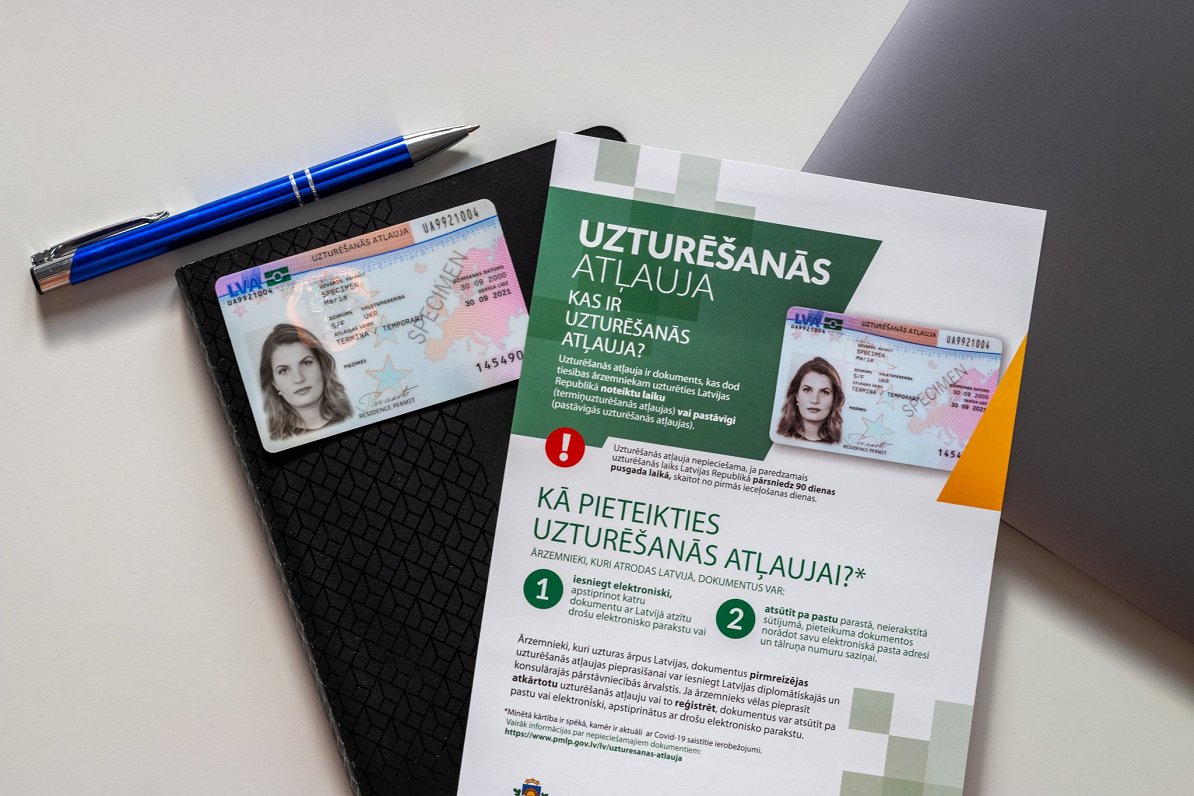In second place was Estonia (142), followed by Malta (119) and Cyprus (104) as the EU Member States where the highest number of non-EU citizens held valid residence permits relative to the Member State’s population.

Germany (4.6 million valid permits), France (3.7 million), Italy (3.6 million) and Spain (3.4 million) together accounted for 69.7 % of the valid residence permits granted to non-EU citizens.
The stock of valid residence permits granted to non-EU citizens to reside in the EU increased by 10.4 % between the end of 2020 and the end of 2021. However Latvia was among three countries where a reduction in the stock of valid permits granted to non-EU citizens was seen: down 2.9 % in Sweden, 4.1 % in Latvia and 9.6 % in Croatia.

A residence permit in the EU represents an authorisation valid for at least three months issued by a competent authority allowing non-EU citizens to stay legally on its territory. The overwhelming majority of residence permits issued by Latvia were for 12 months or more. Data on residence permits are collected with information on the reason for issuing the permit. The main reasons are family, employment, education and other (including refugee status and subsidiary protection). For Latvia, 'other' is the main reason.

The figures do not include information on temporary protection of refugees from Ukraine in EU Member States resulting from Russia's military aggression against that country.




























